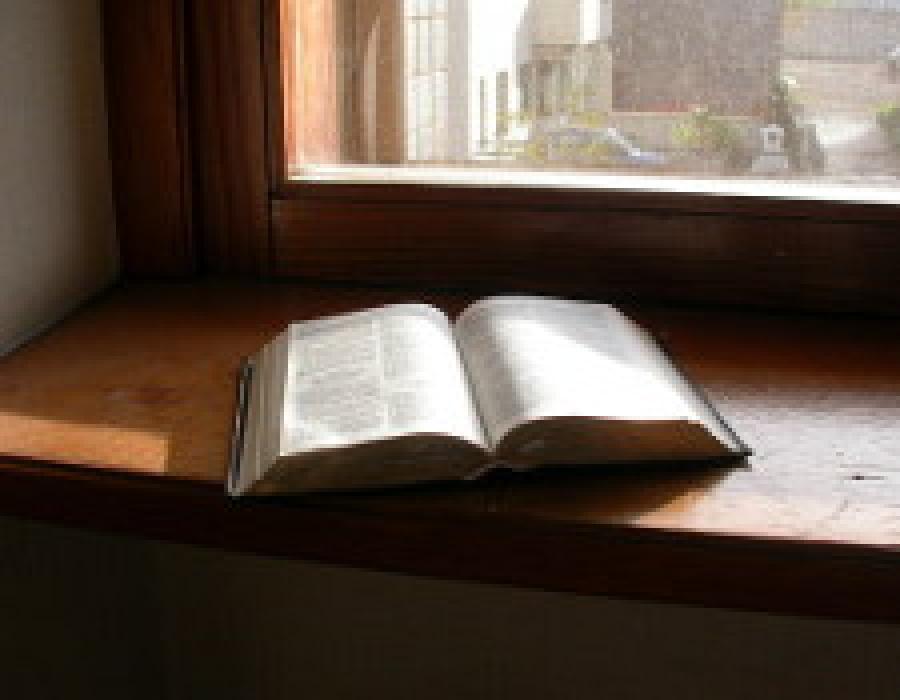The Meaning of Matthew 5:17-19 (Part 1)
Image

I have had a desire for some time to write on the meaning of Matthew 5:17-19. As I began to construct a blog post, it quickly became clear that a one-part entry would not be sufficient. So I am addressing this passage in a series, with this being Part 1.
The purpose of this post is to introduce Matthew 5:17-19, and point out five key interpretive decisions that must be made here.
For clarification, I am not offering a comprehensive biblical theology or systematic treatment of the Law of God in the Bible. That would take a large book. Nor is this a comprehensive examination of every view of Matthew 5:17-19, although I will mention some of the various views later. My goal primarily is to understand what Jesus meant in Matthew 5:17-19. We must let an accurate understanding of Matthew 5:17-19 inform our understanding of the Law and not force a predetermined view on this text.
Let us begin by reciting the text:
Matthew 5:17-19
In Matthew 5:17-19, Jesus states:
17 Do not think that I came to abolish the Law or the Prophets; I did not come to abolish but to fulfill. 18 For truly I say to you, until heaven and earth pass away, not the smallest letter or stroke shall pass from the Law until all is accomplished. 19 Whoever then annuls one of the least of these commandments, and teaches others to do the same, shall be called least in the kingdom of heaven; but whoever keeps and teaches them, he shall be called great in the kingdom of heaven. (NASB)
Jesus’ words here reveal His understanding of the “Law or the Prophets” and His relationship to them.
5 Major Interpretive Issues
There are five parts of Matthew 5:17-19 where a significant interpretive decision must be made. How one decides on these will influence how one views this passage as a whole. Also, a wrong move on any of these five areas could mean an incorrect understanding of the passage. Precision of interpretation is crucial here.
First, what does Jesus mean by “the Law or the Prophets” in 5:17?
Is Jesus singling out the Mosaic Law code for a specific explanation? Or is He referring to the entire Hebrew Scriptures, what Christians often call the Old Testament? This issue is very strategic for understanding what Jesus is doing.
Second, what does Jesus mean by “Law” in 5:18?
Does He mean the same thing as “the Law or the Prophets” in 5:17 (i.e. the Hebrew Scriptures) or is He specifically focused on the Mosaic Law code here?
Third, what does Jesus mean by “abolish” in 5:17?
He uses this term twice, but what does this term mean?
Fourth, what does Jesus mean by the term “fulfill” in 5:17?
Does he mean “establish” or “uphold”? Does He mean “deepen” or “extend”? Does He mean “fulfill” in the sense of finding completion in Him? Or does He mean that a literal fulfillment of what was stated must be accomplished? Grasping the meaning of plerōsai here is very important for an accurate understanding.
Fifth, what does Jesus mean by “these commandments” in 5:19?
Why does Jesus shift from nomos (“Law”) to entole (“commandments” or “instructions”)? Are these terms parallel in meaning or different? Does “these commandments” refer to the commandments of the Mosaic Law legal code? Or does it refer to the instructions of the entire Old Testament? Or does it refer to the words of Jesus from 5:21 through chapter 7? Again, the implications of this issue are significant.
My next post will start addressing these questions and issues.
Michael Vlach Bio
Michael J. Vlach, Ph.D. (Twitter: @mikevlach) is Professor of Theology at The Master’s Seminary where he has been teaching full time since 2006. Michael specializes in the areas of Systematic Theology, Historical Theology, Apologetics, and World Religions. Dr. Vlach was awarded the “Franz-Delitzsch Prize 2008” for his dissertation, “The Church as a Replacement of Israel: An Analysis of Supersessionism.” He blogs here.
- 689 views
I am very much interested in this subject, and have read a number of interpretations from both Messianic Jewish sources and conservative evangelical commentators. The subject of the relation of the Law (Torah/Pentateuch) to the believer is very complicated and many faceted.
While there are some “anchor conclusions” most of us agree with (i.e., we are not to be Torah observant when it comes to diet or dress, Sabbaths or holidays, for example), I personally find the subject somewhat perplexing in its specifics, I have great respect for your writings and am looking forward to this series!
"The Midrash Detective"
Sounds like Mike Vlach is the perfect guy to untangle this mystery! Looking forward to the rest.
Tyler is a pastor in Olympia, WA and works in State government.




Discussion